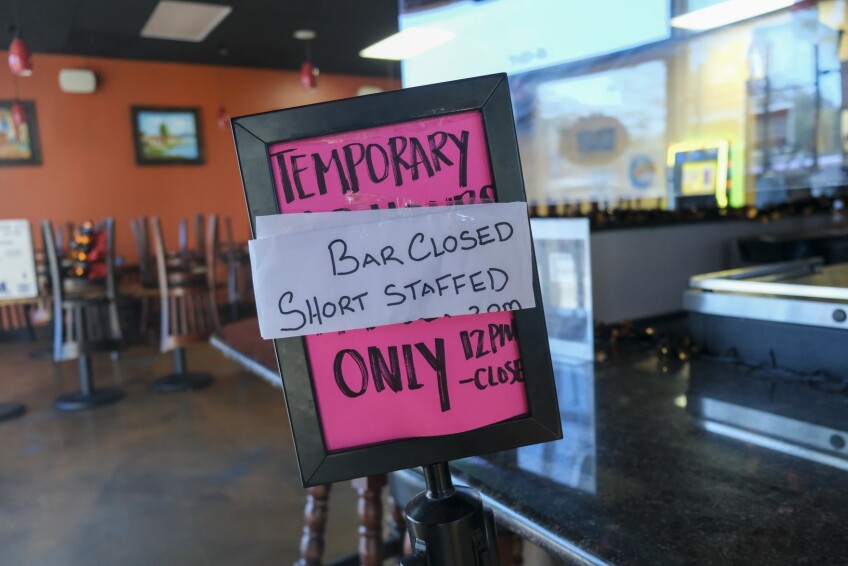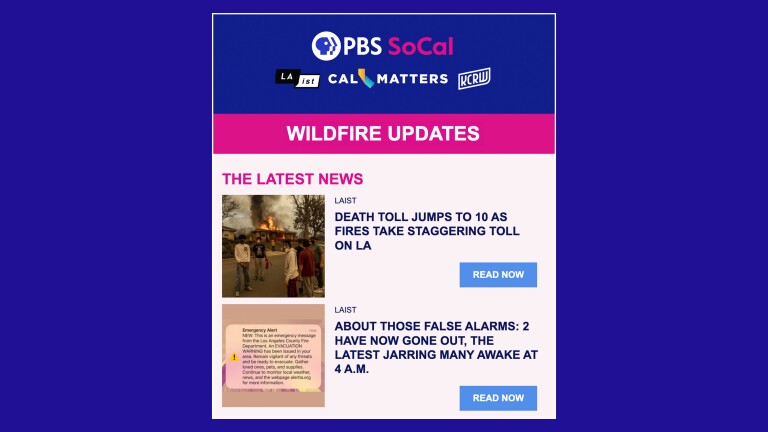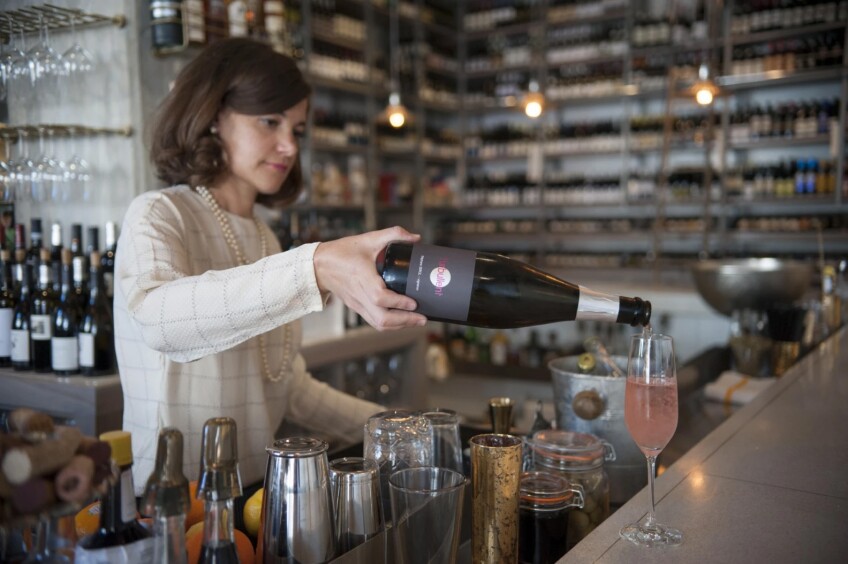For Restaurants on the Coast, Palisades Fire is Just the Latest Disaster

This article was originally published Feb. 22, 2025 on laist.com.
When fire ripped through thousands of homes in the Pacific Palisades and parts of Malibu, it destroyed dozens of restaurants as well. Many that were spared are struggling to keep their doors open, and some have already closed for good.
Restaurateurs along the coast were facing the same headwinds as the rest of the food service industry, and now they're adding new worries to the mix: among them, displaced clientele, continued road closures and uncertainty about summer tourism.
“So many of our regulars lost their homes, lost their businesses, lost their everything,” says Kathryn Coker, wine director for the Rustic Canyon restaurant group and co-owner of Esters wine bar in Santa Monica.
As wildfires impact our communities, your trusted public media organizations have come together to deliver free, reliable, and essential news and updates.

Without that core clientele, “we had to lay off close to 50% of our employees because our business was so down,” Coker says.

A steady drum beat of losses
And the Palisades Fire was just the latest hit.
“First, we had the pandemic,” says Coker, adding that not long after the COVID-19 lockdowns came the Hollywood writer's strike.
For Hollywood, “their slogan was survive to ‘25, and I thought, ‘Yeah, that's good for restaurants too,” Coker says.
Many restaurants and small businesses along the coast were still finding their financial footing when the evacuation orders from the Palisades Fire came down, she says. Esters is just a few blocks from the evacuation zone.

Esters' next door neighbor Cassia, part of the Rustic Canyon group, is one of the restaurants that closed. Today (Feb. 22) is their last day.
Coker says holding space for community has been a powerful motivator to keep Esters' doors open.
“The other day there was a couple at the bar who had their first date here. They just got engaged on New Year's Day, and then their house burned down.”
Regulars have organized goodbye parties at the wine bar before leaving Southern California, she says. And while goodbye parties are good business, they inevitably mean fewer patrons in the future as people move away from these communities.

Destination no more
Part of the appeal of a place like Broad Street Oyster Company in Malibu is that it's along a scenic section of Pacific Coast Highway.
“The romanticized drive from Santa Monica to Malibu is gone,” says Christopher Tompkins, who owns the oyster bar, as well as Broad Street Coffee Company in Malibu.
“A summer full of people that drive that coast are going to look at this devastation, and it's going to shock them,” he says.
He worries people may avoid visiting the area altogether.
Tompkins operates in Huntington Beach, downtown L.A., Santa Barbara and San Francisco too — but he says none are as successful as Malibu.
“If Malibu is the economic engine of the company,” he says, “what does it mean for all of the crew members at the other locations?”
As cleanup continues after fire and flood, road restrictions along Pacific Coast Highway and multiple canyon roads have rendered access to the commercial areas of Malibu difficult.
Tompkins says for now at least, it doesn’t make sense for the business to maintain regular hours.
“Between December and January, I’ve been closed more days than I had closed in the prior five-and-a-half years of operation,” he says. “We basically had to tell 55 of our employees there's no restaurant or coffee shop to work in right now.”
He says their lost revenue since the fires is fast approaching $1 million.
But he isn't considering closing.
“I started this business with my last $2,000 to my name. My wife and I now live in Malibu. We just had a son,” he says. “We plan on being in this community for a long time.”

What can be done?
The road ahead won’t be easy.
“It's not as if we’re some corporation that can float this near catastrophic loss of revenue," Tompkins says. "I'm a family owned business.”
When the pandemic hit, restaurant owners were able to benefit from federal loans and other assistance. But a regional disaster can be harder for small businesses to navigate without that help.
Tompkins says he hopes Los Angeles can become a national leader in revitalizing the local economy after natural disasters.
“Think of the people impacted by the hurricanes in North Carolina. They don't have the luxury of being Los Angeles,” he says. “When something like this happens to this city, it makes global news. We're in a position to help shape the federal response to regionalized disasters.”
“Those PPP loans during COVID are what saved us,” Coker agrees, referencing the Paycheck Protection Program through the federal Small Business Administration. “That's kind of what we need — more grant opportunities for businesses whose revenue was significantly impacted by the fires.”
Aside from government assistance, Coker has another suggestion: “If you want local places to survive, you've got to visit them.”
“Just come in,” she says. “Go to the places that you love right now, or some of them might not be here tomorrow.”

